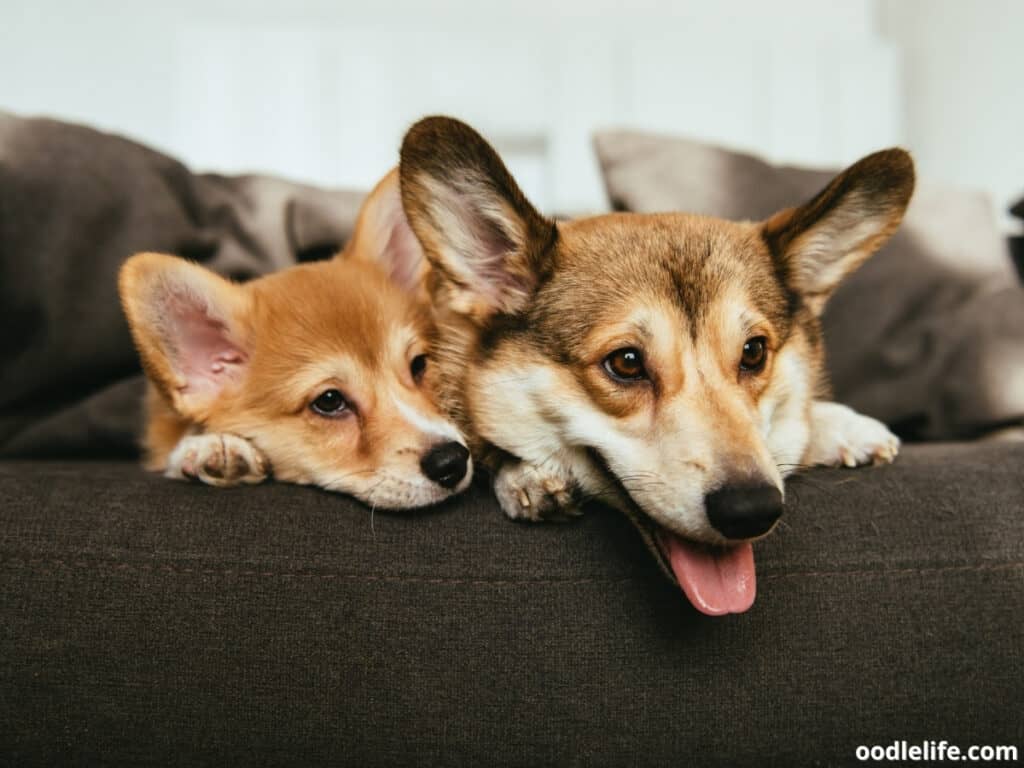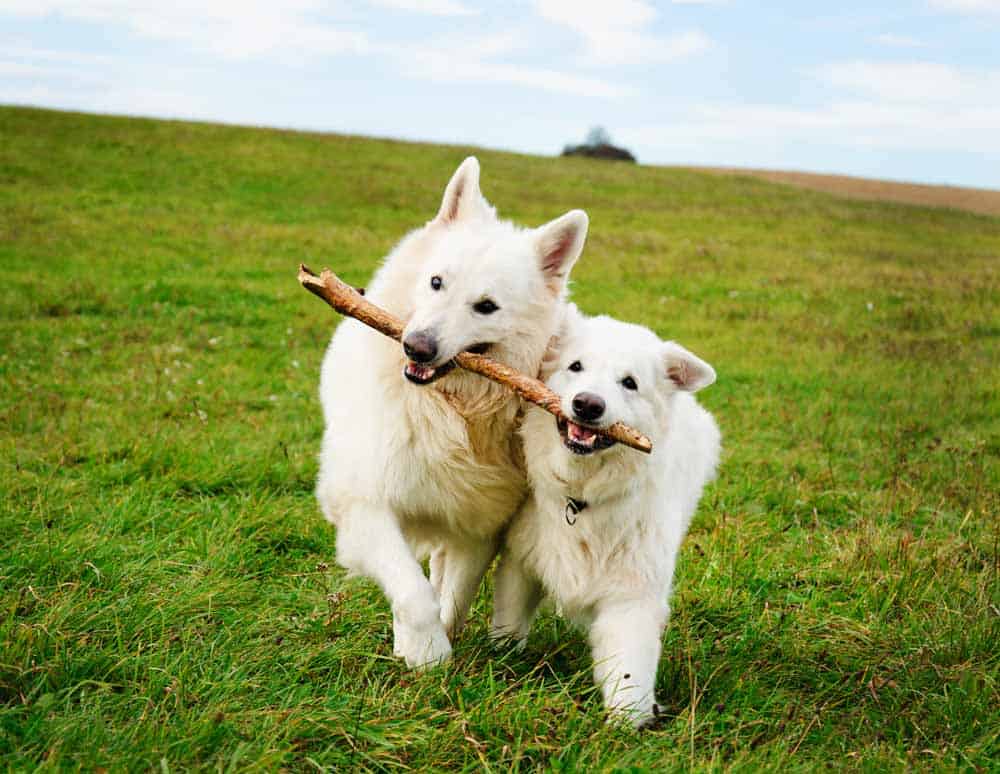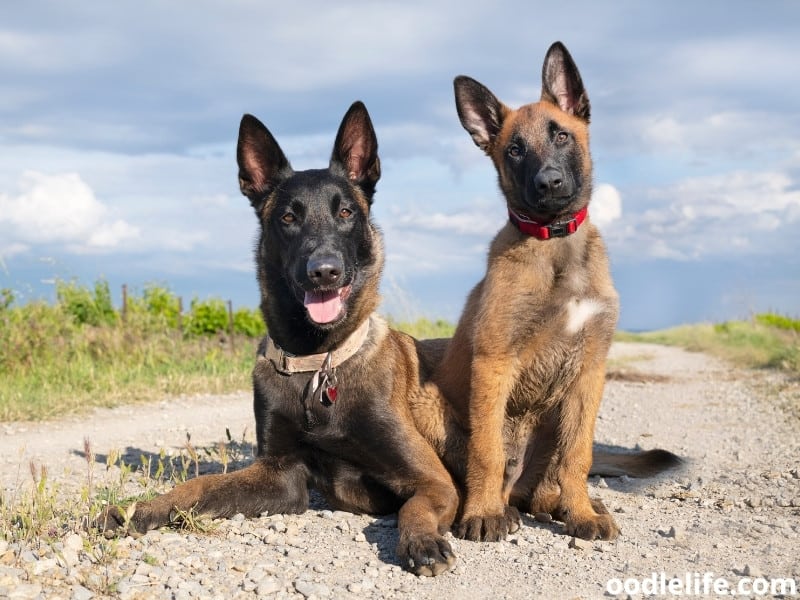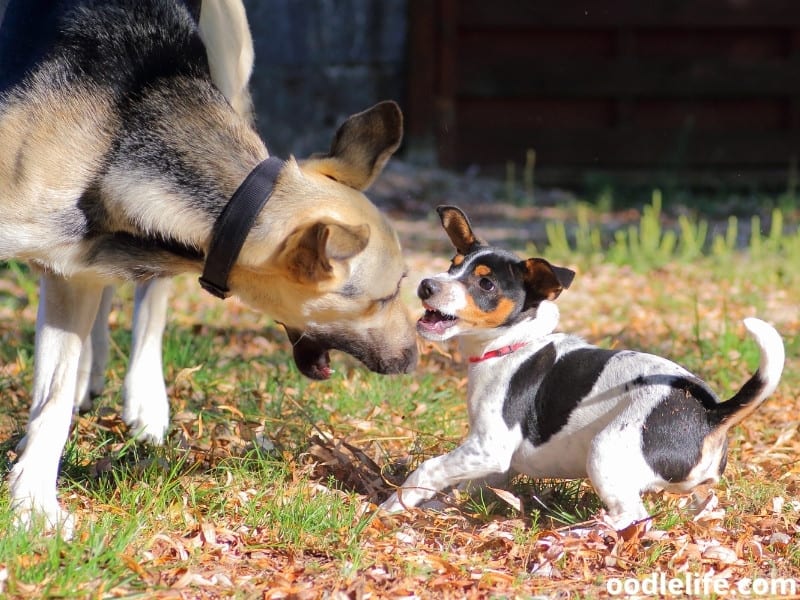How To Introduce Two Dogs? – Step By Step Guide
Introducing two dogs can be a daunting task, but if done correctly, it can be a very rewarding experience for both dogs and their owners. It would be helpful if you had a friend or family member help, as you’ll want to introduce your two dogs out of your home and on neutral ground.

First and foremost, make sure that both dogs are healthy and have been properly vaccinated. Your new puppy should be fully vaccinated at 12 weeks old, and your resident dog should be kept up to date on shots like distemper, parvo, and rabies.
Choose a neutral location, such as a park or a quiet street. Walk your resident dog and have a friend walk your new puppy.
You’ll want to let the dogs sniff each other. This is how they’ll get to know each other’s scent.
Go on pack walks together, slowly extending the duration. Don’t force things. If you see your resident dog go stiff and tense, separate them, and try again when everyone is more relaxed.

Once your dogs seem comfortable with each other, you can slowly try to head home. Keep in mind that your resident dog will see your home as HIS or HER territory. Look out for aggressive or territorial behavior like growling or snapping.
Keep all existing toys and food out of reach for now so that there is less chance of confrontation. Keep both dogs on a leash, especially your older, bigger resident dog.
If the resident is feeling threatened or exceedingly growly, you might want to put your puppy in a separate room and out of reach until things calm down again.
If your resident dog takes a snap at the pup, deliver a firm correction and then separate the two. Don’t punish your dogs or resentment might build.
Take things slow and at the first sign of trouble, separate them. Your older dog isn’t likely to severely hurt the puppy.
The majority of the time, the snaps and growls are meant to put the pup in place and teach him boundaries. However, keep a watch on them at all times and never allow unsupervised interactions until you are sure of your resident dog’s comfort level.
Introducing two dogs takes time and a whoooooole lotta patience. Don’t be concerned if things don’t work out immediately, especially if your dog is known to be an ol’ grump.
Simply have them separated for the time being and keep an eye on them every time they are together. In addition, here are some extra tips to help your dogs get along.
1. Start slowly and build up the time spent together gradually.
2. Keep them separate when you’re not around to supervise.
3. Let them approach each other on their own terms.
4. Encourage positive interactions with treats and toys. Always treat your older dog first.
5. Break up any negative experiences immediately and separate them for a few hours until things calm down.
6. Be consistent with the rules you set.
8. Never force them to interact if they don’t want to.
9. Avoid any situations that could lead to conflict. You might want to feed them in opposite corners of your home for now and remove any toys that could be a problem.
10. Be patient and give them time to adjust to each other. Just like humans, we all can’t instantly be best friends!

Why Is My Dog Being Mean To My New Puppy?
It’s tough enough to be the new kid on the block, but when you’re the new puppy trying to join a pack that already exists, it can be downright scary. If your older dog is giving your new puppy a hard time, there are a few things you can do to help them get along.
First and foremost, make sure that your older dog is getting enough attention. It’s only natural for them to feel a little left out now that there’s a new pup in the house.
Be sure to give them plenty of quality time, including some one-on-one playtime and belly rubs. They need to know that they’re still an important part of the family.
It’s also important to give your new puppy their own space. Just because they’re small doesn’t mean they don’t need their own place to retreat to when they want some peace and quiet.
Set up a crate or dog bed in a quiet corner of the house where they can go to get away from it all. This will also help them feel more secure in their new surroundings.
Finally, keep an eye on how much food you’re giving each dog. Older dogs can sometimes be greedy when it comes to food, so it’s important to make sure your new puppy is getting enough to eat. They need plenty of energy to grow and play, so be sure they’re getting the proper nutrition.
It’s not always easy being the new kid on the block, but with a little patience and understanding, you can help your old dog and new puppy get along just fine.
Give them each some attention and their own space, and make sure everyone is getting enough to eat, and you’ll have a happy, well-adjusted pack in no time!

Why doesnât my older dog like my new dog?
Once you brought your new puppy home and saw any sign of aggressive behavior from your older resident dog, you might be wondering: why does my older dog not like the presence of my new dog?

Puppy Care : How to Stop An Older Dog From Being Aggressive to A Puppy
Bringing a new puppy home is exciting for everyone in your family — except your current dog, that is. They might be wondering who this new little furball is and why they need to start sharing toys with someone new.
If your dog hates your new puppy, there are things you can do to help them work through the adjustment. See things from your dog’s perspective. Keep their routine intact as much as you can, and ensure that both your older dog and the puppy each have their own space. Remember, don’t give up. It will take time for your older dog to fully adjust.